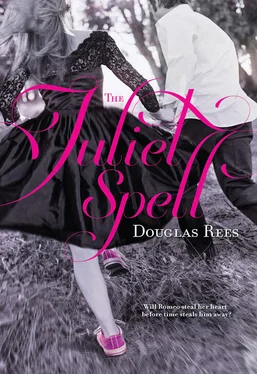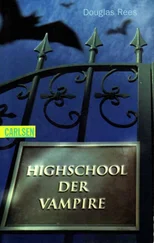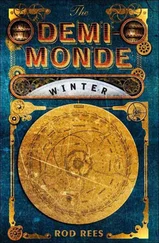Then he got up and went back down to the front row where he’d been.
I was absurdly grateful. Drew Jenkins, for reasons nobody could understand, was total BF best friends with Bobby Ruspoli, and if Drew liked me, maybe Bobby did, too. And maybe Bobby would say so to Mr. Gillinger and maybe—or maybe Drew had inside information. Maybe “You get it” meant “I just saw Gillinger’s notes. You’ve got the part,” not just “You get who Juliet is in this scene.” Or maybe Drew had some kind of weird hold over Mr. Gillinger and was going to make him cast me—Drew was kind of mysterious for a sixteen-year-old geek. He knew all kinds of things. Maybe he had something on Gillinger, like an old arrest for marrying his own ego.
I forced myself to stop thinking like that. I didn’t want the part because Bobby Ruspoli liked me, or even because Mr. Gillinger did (which would be amazing, since Mr. Gillinger thought he should be directing on Broadway and didn’t like anybody). I wanted to play Juliet because I was the best actor who read for it, not because some guy hanging out with some guy thought I was good.
Which is not to say I wouldn’t have taken the part under any conditions. Play Juliet in Swahili? I’ll learn it.
But if I wasn’t going to think about whether Drew’s opinion counted with Bobby and Bobby’s opinion counted with Mr. Gillinger, or whatever, what was I going to think about? I was going to think about why I hadn’t been allowed to finish the scene. Of course.
Had I said “Ay me,” too loudly, or not loudly enough? Had I sounded convincing when I said “Wherefore art thou Romeo?” Did I even sound like I knew what it meant? Yes, I had. No, I hadn’t. Yes, I—
He likes me, he likes me not. He likes me, he likes me not. That was what it came down to, and I couldn’t stop obsessing even though I knew it was all out of my hands.
Two more girls read for Juliet that afternoon. They were both awful. I’m not just saying that. They were awful. One read like she was reciting a recipe: “Take one part Romeo and one part Juliet and stir until done. Then separate and—”
And the other was total emo.
“O Romeo, Romeo WHY ART THOU CALLED ROMEO?”
(Which is not the line, right?)
“DENY thy father and REFUSE thy NAME;
Or if thou wilt NOT, be but sworn my LOVE,
And I’ll no LONGER BE A CAPULET.”
When she was done, and the stage was awash in her saliva, Mr. Gillinger stood up. He looked over the fifty or so of us sitting there, people from his drama classes, people from outside the high school who’d come down to read in the middle of the day—a half-hundred theater junkies, hanging on his every word.
He seemed to be enjoying it. I always thought this moment, when his opinion was the only thing that counted to a roomful of people, was the real reason Gillinger had decided to teach drama. Or maybe it was just the only reason he had left, after so many years of doing it. Anyway, I’d been watching him direct for a couple of years now and something about the set of his once-handsome head always said “God, I’m good.” He didn’t even need to open his mouth to be arrogant.
Gillinger sighed. “I’m not seeing what I want here. I’m not seeing what I need to see at all. Some of you know I didn’t want to do this play. It was forced on me by the administration when they wouldn’t approve my plans to produce The Tragical History of Doctor Faustus with the nude scenes. They said they’d permit the production only if everyone stayed fully clothed. I said the play had been successfully produced with the roles of Helen of Troy, and the Devil Woman, unclothed any number of times since the 1960s. They said there were children—meaning you high-school students—involved in the play. I said that I had no intention of casting Helen as anything but what she was, a woman of twenty-three to thirty-three. And as for the Devil Woman, she could be any age. She is, after all, a demon. Demons are ageless.
“They said that didn’t matter, everyone would have to stay dressed. I asked if they really thought that the children to whom they alluded had never seen a naked human body, when they could call up images involving every possible configuration of lust on the electronic goodies that they carried in their pockets, and study them. They said that didn’t matter, either, as long as they didn’t do it on school grounds. I said I wouldn’t do the play any other way. They said, in that case, I would have to do something else, and I said, in that case, you’ll have to decide what it is. Right now. What play, in your vast wisdom and deep knowledge of classical theater will you permit to be staged at this school? They said the first thing that came into their heads, and that thing was Romeo and Juliet, William Shakespeare’s most overrated piece of hackwork. Probably, it is the only work of Shakespeare’s that they have ever heard of.”
Gillinger sighed again and closed his eyes. “The point is, if I am going to do this show at all, I am going to do it right. I will not, repeat, not, be satisfied with anything less than an outstanding production. And that, unfortunately, will require at least some outstanding actors. Now, I’ve seen a few of you who are—good. I’ve seen a few more who aren’t bad. And many of you will do for the servants. This play is, after all, servant central. But there are key roles that cannot be filled by anyone I’ve seen so far.
“Fortunately, since this production is being funded by a grant from the city, it is, as you all know, open to the community at large. Thus, I do not have to cast just from the shallow talent pool at dear old Steinbeck High. So I’m doing something I’d rather not do, but which the lack of talent in this entire community is forcing on me. I am, in desperation, extending tryouts one more day. Go home, tell your friends if they have any acting ability at all to get down here and save this show. Otherwise—” He shrugged.
Maybe that meant “Otherwise I will not direct anything, and take the consequences.” Maybe it didn’t mean anything. Gillinger strode off into the wings with his jacket trailing from his shoulders like a cape.
That was it. We were done here. All over the theater there were thumping sounds as the seats went up and people started for the doors.
I slung my backpack and slid down the row to the aisle.
Bobby and Drew passed me.
“Break it,” Bobby said with a grin and a nod in my direction. This was Bobby’s version of “break a leg,” which is what theater types wish each other for luck before a show, which this wasn’t. But Bobby said “break it” any time. He thought it made him sound like a professional.
Drew gave me a thumbs-up, then flashed two fingers side by side.
What was that supposed to mean?
All the way home I wondered about that.
If it didn’t mean some weird sex thing, which was virtually unthinkable given how straight-edge Drew seemed to be, it probably was supposed to mean, “I think you’re the best one. But it’s between you and one other.”
Food for thought. Or, actually, dessert for obsession. If I was one, who was the other? Vivian the Terminally Hot? Or was it somebody who’d read the day before, when I couldn’t come to tryouts? Who would that have been? Were they even in our school?
Blah, blah, blah. I wished, in a brief rational moment, that I had a different head with something else in it. But we are all stuck with the heads we have, and mine was trying to think of anything I could do that I hadn’t already done to get that part.
This was not entirely and completely because I was a total drama nerd who only cared about getting a lead. That was a lot of it—but I had a reason all my own that nobody else did.
My mother had never played Juliet.
Читать дальше












